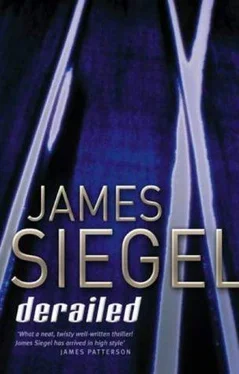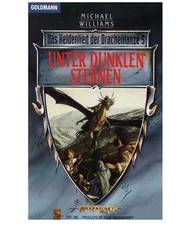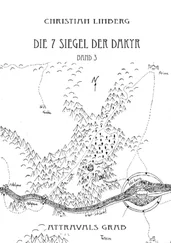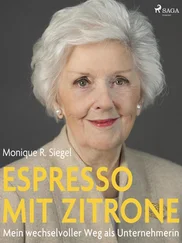I didn’t know whether to run up the steps like a man in a hurry or walk up the steps like a man on a stroll, and I ended up somewhere in between — a man who’s not quite sure where he’s going but is still anxious to get there. When I reached the landing where the cracked asphalt was liberally scribbled with chalk and spray paint ( “Sandi es mi Mami; Toni y Mali . . . ” ), I ended up acknowledging the three doormen the way most New Yorkers acknowledge anyone: I didn’t. I kept my eyes averted — on the doorstep, an island of worn tire tread separating brown cement from curled yellow linoleum.
“Hey . . .”
One of the men had said something to me. I was hoping the man had been addressing one of his friends, but I was pretty sure he’d been talking to me. A man wearing oversize yellow basketball sneakers and dress pants — all that I could actually see of him, since I had my eyes trained down by my feet.
I looked up into a middle-aged Spanish face that might have been okay behind the counter at McDonald’s, but not in the middle of Spanish Harlem with one hundred thousand dollars sitting in my briefcase. Besides, the face looked upset with me, as if I’d just complained about the Happy Meal having no French fries in it, and where exactly was the pickle on my burger?
I kept moving, continued to make like a halfback in the opposing secondary as I kept those legs pumping. Just about through the door, too — since the door was permanently half-ajar and offered no resistance.
“Where you going?”
The same man as before, speaking in heavily accented English, with the emphasis on you, the intonation important here, since I might’ve thought the man was being helpful otherwise: Tell me where you’re going and maybe I can help direct you there . No — the man was questioning my very validity for being there.
“Vasquez,” I said. The first thing that entered my head, besides Help . If you gave a name, it sounded aboveboard. Maybe they knew that name, and maybe they wouldn’t want to fuck with it. And maybe even if they didn’t know that name — Vasquez, who’s that? — they’d still be leery of poaching in someone else’s territory. A man alone was fair game, but when he wasn’t alone, who knew?
Anyway, it worked.
I kept walking through the doorway, and they didn’t stop me. There was no elevator, of course; I took the steps two at a time. Lucinda was waiting for me — He’s going to hurt me, Charles. Maybe the end was waiting for me, too.
The stairway smelled of bodily fluids: piss and semen and blood. I slipped on a banana peel that turned out to be a used condom and nearly fell down the stairs. I could hear ghostly laughter coming from somewhere I couldn’t see, the kind of laughter that might be funny or might not be. It was impossible to tell.
When I knocked on the door, Vasquez opened it. I got one word out before I was dragged in and slammed up against the wall. He slapped me across the face. I tasted blood. I dropped the briefcase onto the floor and tried to cover up. He slapped me again. And again. I said, “Stop it — I have it, there. . . there.” He kept slapping me, open-handed wallops that sneaked in between my upraised arms.
And then, suddenly, he stopped.
He dropped his arm, uncurled his fist, took a deep breath and then another. He shook his head; he exhaled. And when he finally spoke, he sounded almost normal. As if he’d just needed to vent his anger a little bit before coming back to himself.
“Shit,” he said, as if he were saying glad that’s over with. “Shit.” Then:
“You got the money?”
I was breathing too fast, like an asthmatic searching for air. My face stung where Vasquez had slapped it. But I managed to point to the floor. To the briefcase. The apartment had at least two rooms, I thought — I could hear someone from the room next door. A soft sniffling.
“Where is she?” I said, but my lip was swollen and I sounded like someone else.
Vasquez ignored me. He was opening the briefcase and turning it upside down, watching as stacks of hundred-dollar bills slithered across the floor.
“Good boy,” Vasquez said, the way you might to a dog.
I could hear her clearly now from the next room. The apartment — what I could see of it — had almost no furniture. The walls were streaked with dirt and scarred with cigarette burns. They were painted the color of yolk.
I said: “I want to see her.”
“Go ahead,” Vasquez said.
I walked through the half-open door, which led to the rest of the apartment. The room was dark, the window shades pulled down. Still, I could make out a chair against the back wall. I could see who was sitting on that chair.
“Are you okay?” I said.
She didn’t answer me.
She was sitting very still, I thought. Like a child on a church pew who’s been told repeatedly to be quiet. She didn’t look hurt, but she was sitting there dressed only in a slip.
Why was she in a slip?
I could hear Vasquez counting the money from the next room: “Sixty-six thousand one hundred, sixty-six thousand two hundred . . .”
“I gave him the money,” I said.
But maybe not soon enough. I’d said, Sorry, I don’t have it — and Winston had ended up dead and Lucinda had ended up here in her underwear. I wanted her to move, to answer me, to stop sniffling — to understand that no matter what had happened to her, no matter how many times I’d failed her, the end was within sight. I wanted her to walk across the finish line with me and not look back.
But she wasn’t moving. She wasn’t responding.
And I thought: I have to do something now . I’d taken Anna’s money, I’d gotten Winston killed, I’d let Lucinda be snatched off the street. I’d done this all to keep a secret, and even if Lucinda was one of the people who’d wanted me to keep it, I had to do something.
Vasquez walked into the room and said: “It’s all here.”
I was going to get out of here, and I was going to go to the police. It had gone too far. It was the right thing to do. Only, even as I told myself in no uncertain terms what was necessary here, even as I steeled myself for what would be an unpleasant—okay, even horrible—duty, I could hear that other Charles beginning to whisper into my ear. The one who was telling me how close we were. The one who was saying that what’s past is past, and now I was this close to getting out of it.
“Okay, Charles,” Vasquez said. “You did good. See you. . . .”
He was either waiting for me to leave or was about to leave himself.
“I’m taking her with me,” I said.
“Sure. You think I want the bitch?”
Lucinda still hadn’t said anything. Not one word.
“Maybe you better stay home from now on, Charles. Back in Long Island .” He had my briefcase in his hand. “Do me a favor, don’t try some crazy shit like before — you ain’t gonna find me anyway, see? I’m . . . relocating.”
And he left.
I stood there listening to his footfalls growing softer down the stairs, softer and softer till they disappeared completely.
I’m . . . relocating.
For some reason, I believed him, but maybe only because I wanted to. Or maybe because even Vasquez knew you could bleed someone only so much before the body was declared officially dead.
“I thought he was going to kill me this time,” Lucinda whispered slowly. She was staring at a point somewhere over my head. Even in the darkness I could see she was trembling. There was blood on the inside of her thigh. “He held the gun to my head and he told me to say my prayers and he pulled the trigger. Then he turned me over.”
Читать дальше












